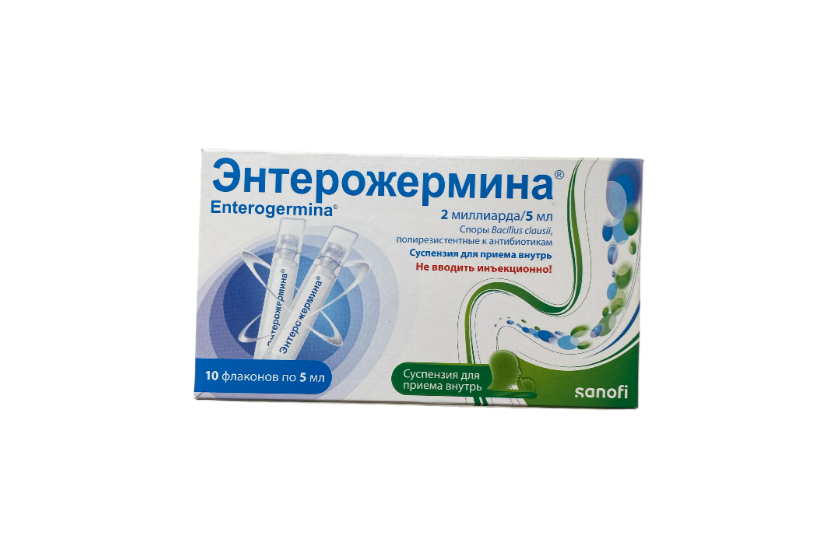Enterogermin 5 ml 10 ampoules
17,00 €
Probiotic
In stock
Save this product for later
Customer reviews
Reviews only from verified customers
No reviews yet. You can buy this product and be the first to leave a review.
Enterogermin 5 ml 10 ampoules
Product Details
Enterogermin 5 ml 10 ampoules
Enterogermin 2 billion (for children) and 4 billion (for adults) is a drug consisting of a suspension of Bacillus clausii spores, a common E. coli that does not have pathogenic activity.
The physiological composition of the intestinal flora can change under the influence of certain factors, including drug therapy (especially antibiotics), diet and stress. The resulting dysbiosis can be combated using various therapeutic approaches, including the use of living biotherapeutic organisms such as Bacillus clausii spores contained in 4 billion Enterogermina.
Due to the concentration in just one vial per day, Enterogermin 2 billion is able to restore changes in the bacterial flora and is therefore suitable for the treatment of the whole family (including infants).:
intestinal dysbiosis associated with antibiotic or chemotherapy treatment is often accompanied by gastrointestinal symptoms such as diarrhea, abdominal pain and increased intestinal air content
acute and chronic gastrointestinal disorders in young children due to poisoning and intestinal dysbiosis
, dysvitaminosis, that is, vitamin deficiency conditions caused by a violation of their formation and absorption in in the intestine, due to the ability of B. clausii to produce B vitamins.
Due to its structure, which provides resistance to numerous physico-chemical factors, B. clausii spores are able to overcome the gastric environment, characterized by very high acidity, and reach the intestines unharmed, where they undergo transformation. in metabolically active and proliferating bacteria. Enterogermin 4 billion has been shown to inhibit the growth of pathogenic strains in favor of "good" bacteria in the intestine through two mechanisms: the colonization of free ecological niches, which, therefore, are no longer available for the growth of "bad" bacteria, and the production of substances capable of killing them, including bacteriocins and antibiotics such as clausin.
B. clausii spores are resistant not only to the stomach, but also to polyantibiotics, which means that they are able to survive in the presence of antibiotics, including penicillins, tetracyclines, macrolides and other classes of antibiotics.
Enterogermin 4 Billion can be taken during antibacterial therapy, it is able to reduce the incidence of side effects such as abdominal pain and diarrhea during treatment and in the next 7-10 days.
There is no risk of developing antibiotic resistance, since the genes that ensure B. clausii's resistance to antibiotics are not transmitted to other bacteria.
The probiotic is resistant to heat and does not require storage in compliance with the temperature regime.
Ask a question or inquire about delivery to your country
Display prices in:EUR
